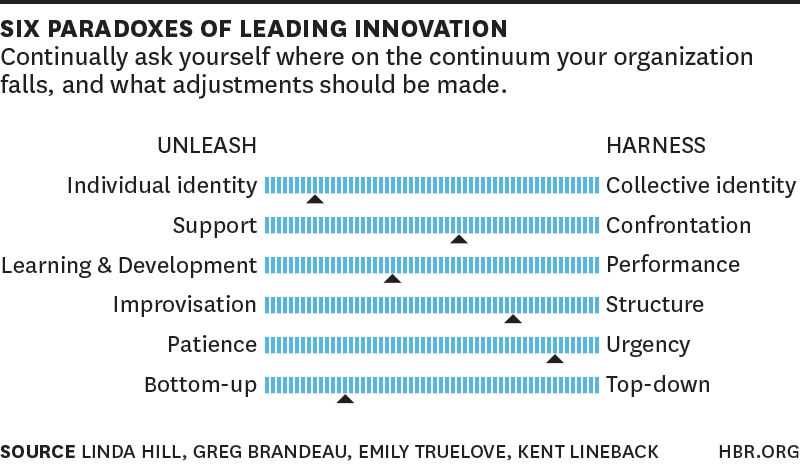This post builds on concepts introduced in its sibling post, “The ELCA Innovation Lab: An Origin Story.”
You might know it as a remix, mashup, medley or cover, but some of my favorite songs come from the process of adding or rearranging the original tune to include something new or different. Sometimes a fresh take on an old classic brings new inspiration.
As the ELCA Innovation Lab has begun to imagine ways to help the church reclaim relevancy, we have tapped into our deep reformation roots. After all, Lutheranism is a tradition founded on the new and useful ideas of Martin Luther that changed not only the church, but much of western society.
This post features three innovation insights presented as a “remix” of Lutheran theological concepts and Dr. Linda Hill’s work on collective genius innovation.
Insight 1 – Vocation and the priesthood of all believers
Innovation (something new and useful) is not about solo genius but focuses on building the culture and context for collective genius. For Hill and associates, each individual person has a unique slice of genius – their ideas, experience and way of seeing the world. To build an innovation culture, each person’s individual slice of genius must be unleashed and harnessed as part of the “collective.”
For Lutherans, this individual slice of genius might be likened to understanding vocation — the call to faithful expression of the one’s God-given gifts poured out for the well-being of the neighbor. And so, the collective for Lutherans might be akin to the body of Christ and priesthood of all believers. In the collective Body, all members have varying gifts and equitable share and responsibility.
Insight 2 – Leadership: The role of co-creators
Leadership today does not seem to be getting any easier. COVID-19 has certainly proven this point.
Gone are the days when a solo leader could look out the front door and see clearly for miles, easily lining up the community in rank and file to march toward a destination. Today’s world is increasingly complex. Solutions to the biggest challenges facing communities are often opaque and unknown. Innovation — the iterative process of rooting down in purpose and moving ahead step by step — becomes the ministry imperative. The type of leader needed, according to Hill’s work, is the co-creator – someone who sets the context for the hard work of innovation and works alongside others to get it done.
Similarly, Lutheran theologian Philip Hefner (The Human Factor) suggests that humans are to be co-creators in the creation God has purposefully brought into being and that humans have freedom to participate in fulfilling God’s purposes in the world. God is Creator, and as humans created in that image.
How might we faithfully lead by walking alongside and cultivating the context for others to do the hard work of developing new and useful things so more people might know the way of Jesus and God’s love?
Insight 3 – The Gift of Paradox
Hill and associates have uncovered six essential “paradoxes” for innovation.
 |
Source: Harvard Business Review, HBR.org |
For Martin Luther, the paradoxical nature of being both saint and sinner, free and bound, is where the freedom of the Christian lies. As challenges and issues in both church and society become more complex and ambiguous, the presence and expectation of paradox is a theological gift.
In the end, remixes come and they go. But the tunes often continue to ring true. What rings true for you in this remix? What new questions or ideas come to mind?
Mikka McCracken, Executive for Innovation & Director, ELCA Innovation Lab
The ELCA Innovation Lab Blog is new! We’d love to hear what you think. If you’ve got a few minutes, complete this short survey. If you have any additional questions or comments let us know at lab@elca.org.
